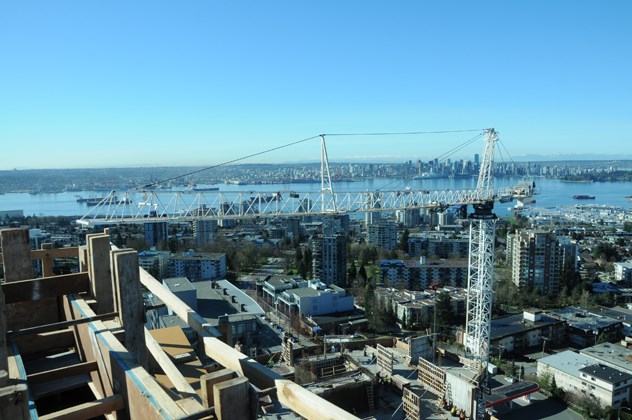How is the City of North Vancouver going to come up with $30 million in the next 10 years?
The best method is to ask developers to dig a little deeper, according to a consulting firm that addressed council March 7.
With North Vancouver expected to welcome 7,515 new residents by 2025, the associated cost on transportation, parks, water, sewer and drainage is estimated at $30 million, according to a planning firm’s report.
Levying heftier development cost charges could offset the price absorbed by the city, according to Sara Stevens, a planning consultant with Urban Systems who spoke to council Monday. Urban Systems was contracted to review the city’s DCC policy.
Development cost charges, or DCCs, is a price developers pay when building on a previously vacant lot or replacing an old building with something bigger and meant to house more residents.
“DCCs I think are one of the best tools that communities can use to ensure that existing taxpayers are not saddled with the burden of growth,” Stevens said.
For Mayor Darrell Mussatto, the major issue is the cost faced by renters and buyers.
“At the end of the day, do DCCs contribute to higher costs for units, whether they’re apartments or single family homes?” he asked.
“We have not seen any data out there that would suggest that that’s the case. The market determines how expensive a home is,” Stevens answered. “We took a look at some of the homes that were for sale in the city, and really, DCCs are only one per cent of the selling cost.”
The city is now looking for the public’s response on the issue.
If Urban Systems’ recommendations are followed, the biggest jump in DCCs would be on apartments, which would spike by about 26 per cent. Duplexes and townhouses would also hop up 26 per cent.
The rates on single-family lots would shoot up by approximately 15 per cent, from $12,821 per lot to $14,749 per lot.
The raised city rates would still be substantially lower than the District of North Vancouver’s rates, which in the case of apartments and townhouses are approximately 50 per cent higher.
Enacting steeper development fees now is the equivalent to buying a barn lock when the horse is in the next county, according to Coun. Rod Clark, who asked why the issue wasn’t discussed prior to the influx of development in recent years.
“It would seem to me, as a defender of the taxpayer’s purse, that we left some money on the table here,” Clark said.
The city’s current DCC policy was crafted in 1997 by then-mayor John Loucks.
Coun. Pam Bookham asked if DCCs accounted for all the costs the city will face by taking in new residents.
“Can you say with certainty that all this new development that is happening is not imposing costs above and beyond what the DCCs generate?” she asked.
North Vancouver waives all DCCs for not-for-profit housing and has the option of waiving DCCs for affordable rental units.
Following public input, council could enact the new policy as early as spring.



